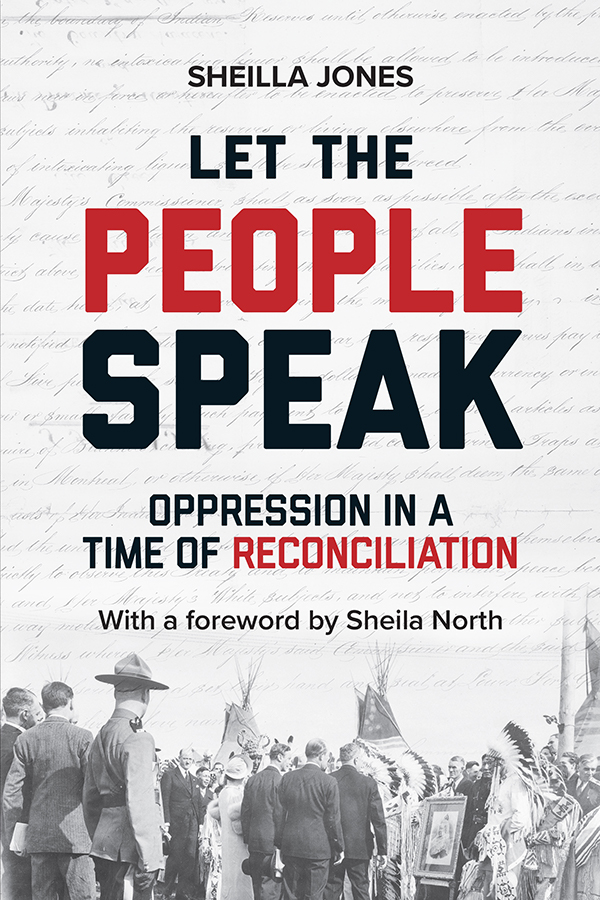Over the past fifty years, Canada’s Indigenous Affairs department (now two departments with more than 30 federal co-delivery partners) has mushroomed into a “super-province” delivering birth-to-death programs and services to First Nations, Inuit and Metis people. This vast entity has jurisdictional reach over 90% of Canada’s landscape, and an annual budget of some $20 billion. Yet Indigenous people have no means to hold this “super-province” accountable to them. Not a single person in this entity has been elected by Indigenous people to represent their interests. Not one. When it comes to federal Indigenous policy, ordinary Indigenous people in Canada are voiceless and powerless.
In Let the People Speak, author and journalist Sheilla Jones raises an important question: are the well-documented social inequities in Indigenous communities–high levels of poverty, suicide, incarceration, children in care, family violence–the symptoms of this long-standing, institutionalized powerlessness? If so, the solution lies in empowerment. And the means of empowerment is already embedded in the historic treaties. Jones argues that there can be meaningful reconciliation only when ordinary Indigenous Canadians are finally empowered to make their voices heard, and ordinary non-Indigenous Canadians can join with them to advance a shared future.
News & Reviews
“[Let the People Speak] goes through the history of how we got here, it’s concise and it empowers people–not just individuals but as a nation.” — APTN National News
“[Let the People Speak] aims to revolutionize how Canadians think about reconciliation.” — Winnipeg Free Press
“[Let the People Speak] is a very heavy but important and very relevant topic to our lives these days… If Canada is really wanting to reconcile with its Indigenous people then we have to respect the sovereignty, we have to respect the people that come from this land, and start treating them as people not as subjects to the government.” — Global News the Morning Show Winnipeg
“A modern annuity is now, more than ever, a powerful response to the TRC Calls to Action, and to the Missing and Murdered Indigenous Women and Girls Calls to Justice. It is a practical and realistic means for settlers to share the prosperity of the land with the first people.” — The Toronto Star
“Reconciliation still requires substantial part on settlers to accept the truth and then take meaningful action to affect positive change. Sheilla Jones offers a provocative possibility towards a future where we all of the means for a decent life.” — Winnipeg Free Press
About the Author
Sheilla Jones is a Senior Fellow with the Frontier Centre for Public Policy, leading the Treaty Annuity / Individual Empowerment Initiative. She has been researching Indigenous politics for more than 20 years, serving as a facilitator for the Treaty Annuity Working Group, a special committee of the Social Planning Council of Winnipeg, which focused on modernizing First Nations treaty annuities. Sheilla is an award-winning Canadian journalist and author of several books, including an examination of the troubled early years of the Manitoba Metis Federation, as well as books on cosmology and quantum physics. Sheilla has a deep settler history. Her European ancestors have been part of settling Canada since the 1600s. She lives in Winnipeg.




